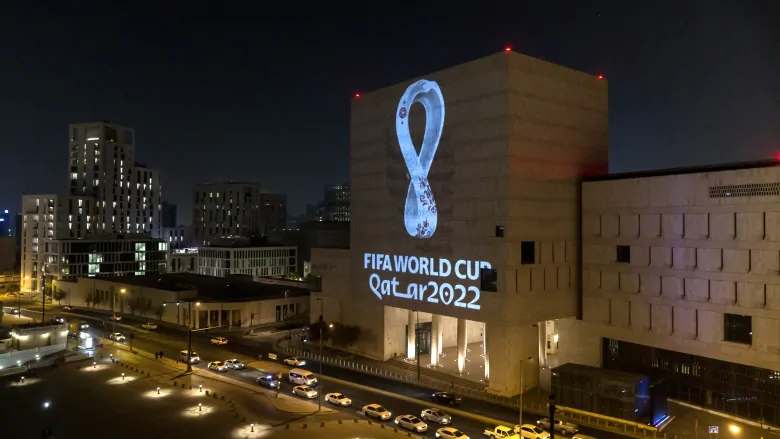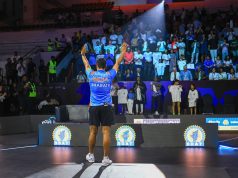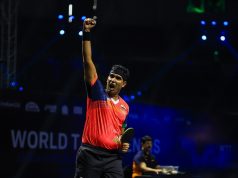The big kickoff is just four days away. With the stars arriving and the fans thronging, the entire Middle East has risen to the occasion to host the Football World Cup 2022.
Twelve years after being awarded the rights to host the Football World Cup 2022, Qatar, one of the smallest Gulf states, has prepared eight stadiums, constructed a Metro system worth some billions and opened five-lane highways, new airports, roads, public transport systems, hotels, etc. In fact, Qatar was transformed into a huge construction site throughout this period with almost two million workers migrating from South-East Asian countries and Africa to make the country ready for the World Cup.
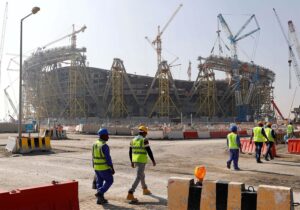
However, Qatar has faced severe criticism for violating human rights and labour exploitation in terms of migrant workers. The Western media has reported that the workers had to work under extreme conditions and harsh situations. The illegal recruitment charges, nationality-based discrimination, unpaid wages, exposure to extreme heat and other health and safety risks, overwork and workplace violence resulted in the death of about 6500 migrant workers.
To protest against this violation of human rights, Denmark will play the World Cup with shirts having the name and logo of the sponsor masked. The company explained this unusual design by referencing that they do not wish to be visible during a tournament that has cost thousands of people’s lives. The Netherlands, on the other hand, will auction their team members’ shirts to support migrant workers in Qatar.
These are a few of the protests that Qatar is facing. But the country’s Supreme Committee for Delivery and Legacy has claimed that the nation had implemented significant labour market reforms that had allowed the migrant workers to change jobs, leave the country at will and file complaints with labour courts. In this context, FIFA has written to World Cup teams urging them to focus on the Football in Qatar and “not let the sport be dragged into ideological or political battles”.
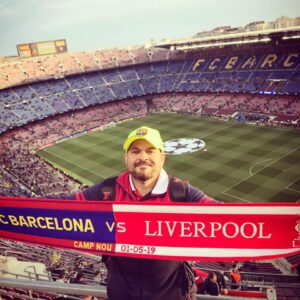
With Football being one of the most important factors to integrate the world, the fans hope to push all conflicts aside and enjoy four-weeks of non-stop action of this beautiful game. Saurav Guha Thakurata, a die-hard Football fan, thinks that the media has blown out of proportion. Saurav, who has been living in the Middle East region since childhood, feels that the dominance of the European countries in hosting the World Cup is in stake and that has raised all the controversies.
“Though Qatar has eased some of its strict rules, yet the basic rules remain the same. There is a control on alcohol and free roaming on the roads. It is not banned in Qatar, but people can only buy it at bars inside designated hotels. Fans can drink at dedicated zones but cannot take the drink to their seat,” Saurav explained.
Another major challenge could simply be the volume of visitors. Qatar is expected to have around 1.2 million people during the World Cup period. To accommodate such a large number of visitors in a country that has an area of only 11500 sq km, is a humongous task. It has been reported that the rents of houses have skyrocketed and in some places the landlords have refused to renew the annual contract of their tenants in order to rent out their houses in high price during the World Cup.
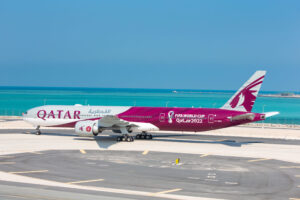
In order to avoid this feverish rush for rooms in Doha, some fans have thought of spending nights on cruise ships or camp in the desert. Many have decided to station themselves in Dubai or Riyadh or elsewhere and take a flight to and fro on the match days. Dubai in UAE has arranged almost 60 chartered flights especially for the World Cup so that fans who have booked hotels in Dubai can have an easy travel to the stadiums in Doha.
Saurav, who stays in Dubai, is experiencing the gripping World Cup fever in the city. He says, “Dubai is buzzing. It will take only 45 minutes from here to Doha and is one of the most convenient ways to reach the stadium. I, myself, have chosen a weekend to go to Doha to watch three matches in two days. I will be watching Belgium vs Morocco on 27th at Al-Thumama Stadium followed by Spain vs Germany on the same day at Al-Bayt Stadium. Next day i.e on 28th I will be at Lusail Stadium watching Portugal vs Uruguay match. There are others like me who have similar plans.”
This World Cup is probably the last one for the two superstars of modern-day Football. Both Christiano Ronaldo and Leo Messi will pour their hearts out to entertain the fans. FIFA has reported that 2.9 million tickets were sold by mid-October. The top 10 places ranked by ticket sales to their residents include Qatar, Saudi Arabia and the UAE. The USA, England, Mexico, France, Argentina, Brazil and Germany are also on the list released by FIFA.
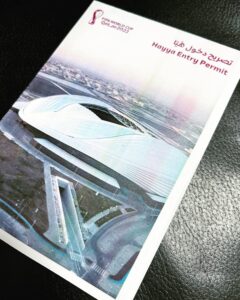
However, it is mandatory for the international ticket holders to have the Hayya Card not only to enter the stadium but the country as well. Hayya Card is a fan ID having the card-holder’s name, photograph, status, match tickets, Hayya number, passport number, QR code and other important information. Since it will act as an entry permit into Qatar for international fans, card-holders do not need a separate visa. With the Hayya Card, people can have free access to metro and bus transportation services on match days.
The countdown to Qatar is almost in its last phase. This is the first World Cup to be held in the Arab world which has to be shifted from its normal slot to avoid the Gulf’s scorching heat. The players were already in the midst of domestic leagues across nations. Though the leagues have been paused for six weeks for the mega event, yet the preparation time is short for the players and the teams.
However, the spectators are waiting with bated breath for the start of the World Cup. They will watch the matches sitting in state-of-the-art and technologically advanced stadiums. Seven out of eight stadiums are having air conditioning systems, with vents both under seats as well as pitch-side. The ‘connected stadiums’ will be managed remotely from a central command centre through 5G and hi-speed wi-fi by a technology team.
The team have created a digital twin for each stadium. Any action happening in a real stadium is reflected real-time in its digital twin. With this the team will manage CCTVs, monitor crown gatherings both at the gate and inside the stadiums, control the stadium temperature and manage energy and water consumption.
Thus, with what seems to be a perfect background, the Football World Cup is waiting for the first whistle. We agree to what Saurav says, “As the whistle blows, the world will forget all debates. It will only be four-weeks of constant Football; at the end of which people will only remember another World Cup that happened in Qatar.”

